Meet the COVID-19 frontline heroes
Part of an ongoing series
...
The COVID-19 frontline
Despite the hardships and health risks, millions of essential frontline workers continue to do their jobs during the COVID-19 pandemic. These hardworking heroes are keeping Americans fed, picking up their trash, providing them life-saving medicine, delivering their groceries and packages, preparing their food, cleaning their hospitals, caring for those who are most vulnerable, and keeping us safe—often while earning low wages and few benefits.
In this series, I will introduce you to some of these frontline workers: In their own words, they share the risks and challenges they face, the concerns they have, and how they are coping. They will highlight what policymakers, employers, and each of us can do to better protect and support them.
Unsung health heroes
Although doctors and nurses—who earn a median wage of $105 per hour and $34 per hour, respectively—receive the lion’s share of public recognition for their life-saving role in the fight against COVID-19, they represent less than 20% of all essential health workers.
Millions of other health workers earn significantly lower wages while receiving less public recognition for their roles, despite their sacrifices. Nearly 7 million essential workers are employed in low-wage health jobs on the COVID-19 front lines, including:
Median wages across these occupations were just $13.48 per hour in 2019—well short of a living wage. More than 80% of them are women, and they are also disproportionately workers of color.
Source: Data from May 2019 Occupational Employment Statistics and the Census Bureau’s Current Population Survey
Grocery workers
Across the country, more than two million people work in grocery stores. Deemed essential businesses, grocery stores and supermarkets are staying open even in the worst-hit communities.
Due to close proximity and frequent face-to-face interaction with customers and colleagues, grocery workers are highly exposed to COVID-19, and the virus has already killed several of them. Employers have responded with new safety measures, but more aggressive safeguards and wider access to personal protective equipment (PPE) are needed.
Pay for most grocery workers is low. Grocery cashiers earn a median wage of just $10.93/hour. Employer-provided benefits are rare for non-unionized grocery workers. Prior to the start of the pandemic, Walmart and Kroger, the country’s two largest grocery chains, offered hundreds of thousands of workers no paid sick leave. Most large grocery chains have introduced temporary COVID-19 sick leave as well as one-time bonuses or hazard pay of an additional $2/hour.
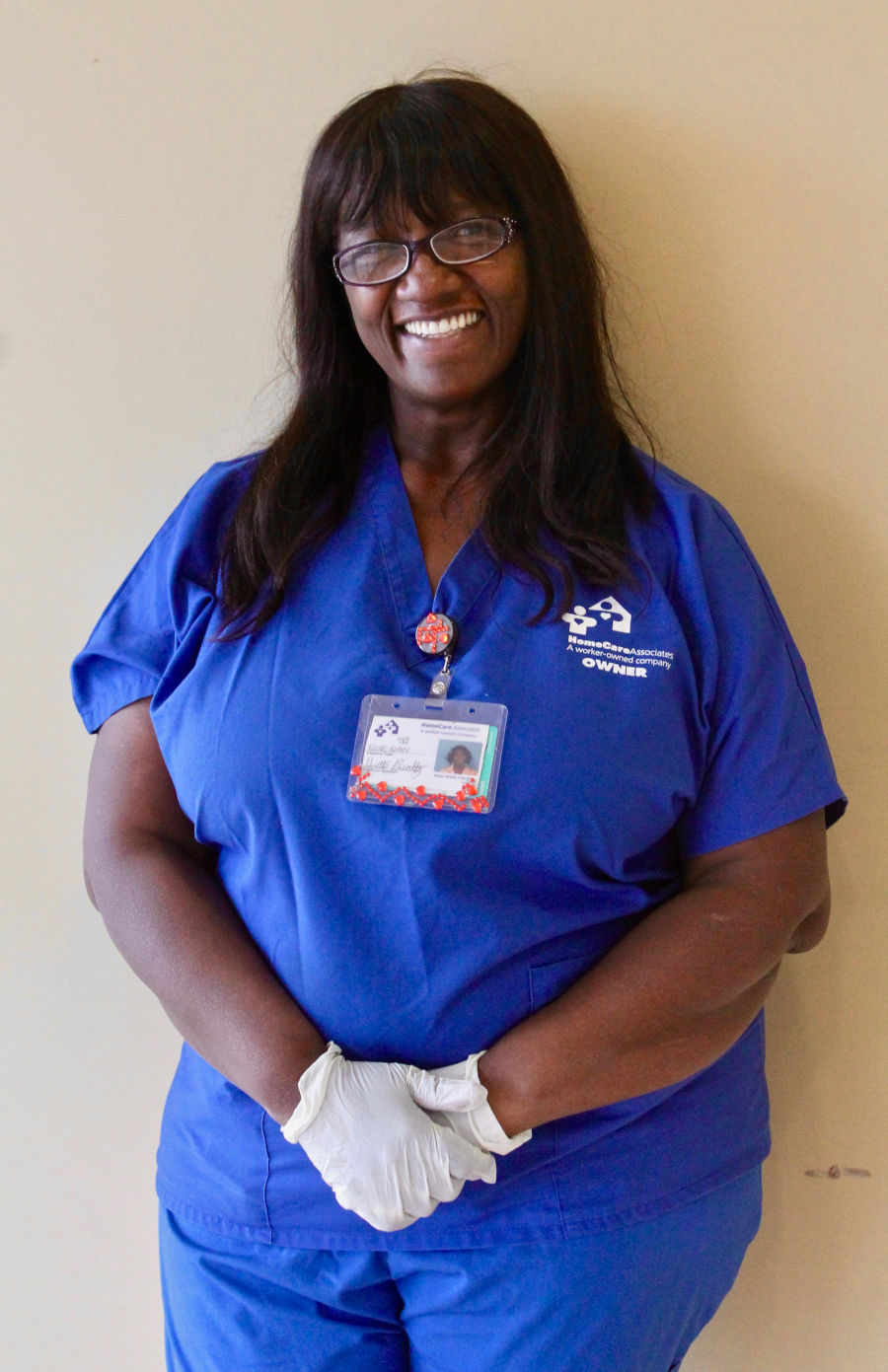
Yvette Beatty
Home health aide · Age 60
“I am feeling scared. Saying goodbye to my family, I don’t know if it is going to be the last goodbye.”
“I hope and pray to God I would never get it. I don’t think I would even go home. I would tell my kids: Give me a tent, feed me from the outside.
“We are running around with no protective gear. I would love to see us have hazard masks, instead of putting cloths over our face or going to the Dollar Store and buying dollar masks. We are taking a chance on our life, too. We need equipment.
“You’re telling me, before you pushed out these trillions and millions of dollars, you couldn’t push this out for us? You couldn’t push it out for these people who are on trash trucks, who are mopping floors, who are picking up biowaste, who are home health aides? We right here on the front line, we need you too. Open up. It is time to wake and recognize us.”
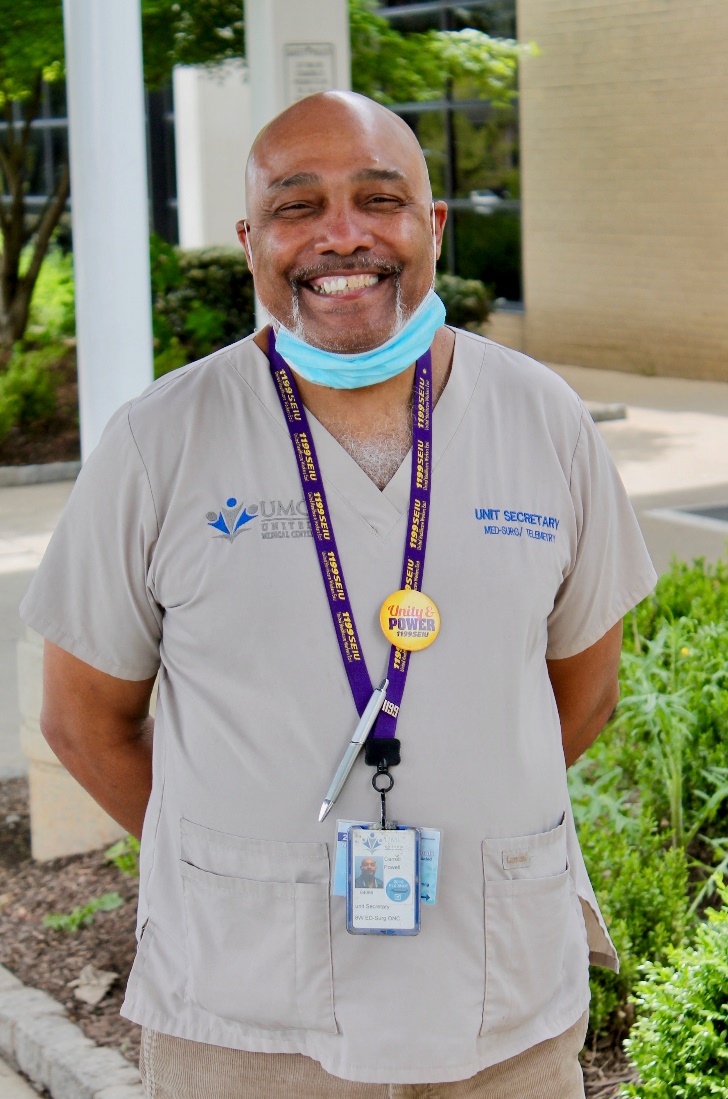
Tony Powell
Hospital administrative coordinator · Age 62
“We are like soldiers marching into battle, but you don’t have enough guns.”
“It’s just overwhelming, the amount that you will go through every day having to be on the front lines. A lot of people can work from home. They don’t understand what it means.
“Nobody recognizes those workers that are really on the front line. People are recognizing doctors and nurses. But they’re not recognizing dietary, environmental service, CNAs. These are the people doing all the main grunt work that has to be done. Nobody is telling them, ‘We appreciate what you do. We realize you have a family. We realize you are underpaid. We realize you are understaffed.
“People are not looking at people like us on the lower end of the spectrum. We’re not even getting respect. That is the biggest thing: we are not even getting respect. Nobody is listening to their voices. Maybe they’ll wake up and see: Oh, these are the people that are actually taking care of the people that need to be taken care of.”

Andrea
Hospital housekeeper · Age 29
“One minute you are important enough. The next minute, you aren’t that important to get the proper equipment, but you are important enough to clean for the next patient.”
“We had one patient that we thought had the virus. We asked the charge nurse to send us to get fit-tested for the N95 mask that everyone was wearing. Her response was, ‘No, these are for special people.’ And we were just like, ‘We are here to clean the room and make sure no one else gets the virus, and you are telling us that these are for special people?’
“I’ve been on my unit for seven years. We are on the same unit every day, with the same people. I don’t even think my charge nurse knows my name. They just see us as housekeeping. That is what they call us.
“It shouldn’t take such a trying time for us to get recognized, considering we are the heart of the hospital. We are making sure that family members aren’t coming home with new germs and with new illnesses, because we are keeping the hospital clean. I don’t think it should be like: Oh yeah, let’s recognize them now, because we need them. It’s something that I think should have been going on.”
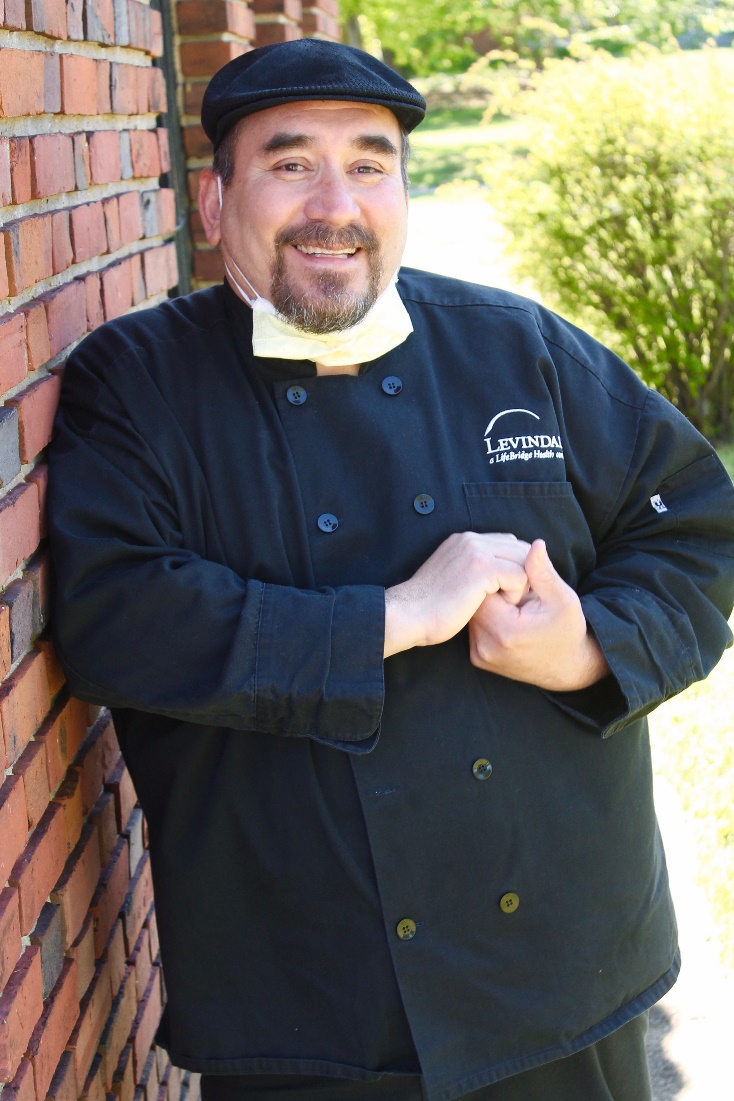
David Saucedo
Nursing home cook · Age 52
“I am having to argue for my supplies. It makes me feel secondary, not equal. You are expendable in a way.”
“I deal with patients who are not capable of taking care of themselves, that have dementia. I accepted that head-on because I have two handicapped brothers. My heart always goes to people who cannot help themselves. I really care for all my patients.
“Whatever infections they have, it all is going to end up in the kitchen. The Alzheimer’s patients don’t know about ‘six feet, keep your distance.’ They just come up to you, grab you, and sit and talk to you. I need to protect them as much as I need to protect myself. The last thing I want to do is get one of my patients sick or one of my loved ones sick.
“When I was in the Navy, when we went to war, I was getting paid hazardous duty pay. Okay, I signed up to work in a hospital, I knew germs were going to be there. But, had everyone knew coronavirus was going to come, how many people would have decided not to work in a hospital? To me, it is a hazardous job right now. We should be getting paid hazardous pay."
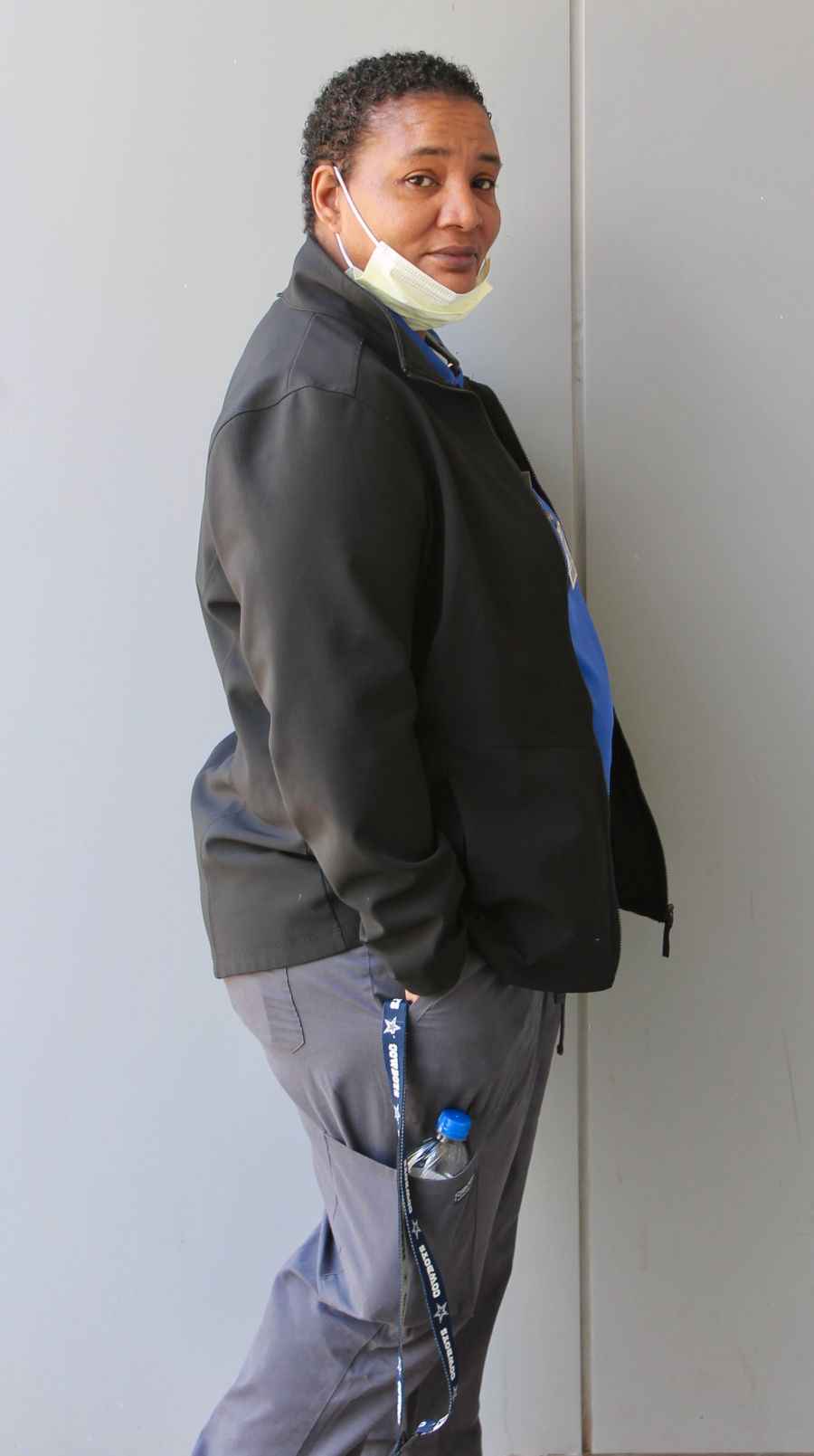
Sabrina Hopps
Acute care facility housekeeping aide · Age 46
“Housekeepers are the number-one hero. If housekeeping does not clean the rooms correctly, the pandemic will be worse than what it is.”
“I clean patient rooms in the ICU department. Those are the sickest people. It scares me because I can be cleaning a patient’s room and the patient can have the coronavirus and I would never know. I have asthma, and my son has asthma. My son is a cancer survivor. I am petrified to not know what is going on or what the patients have.
“I feel we should be getting extra compensation. We are supposed to get a 3% bonus. With my pay, at $14.60 an hour, 3% isn't going to do nothing. If pay was better, I would be able to live on my own and so could my children. What I make, it is not enough. So I am forced to share an apartment with my son and daughter and my granddaughter. Going back and forth to work, I am jeopardizing their lives, their safety, especially my son’s. His immune system is shot, just like mine.
“If I didn’t love what I do, I could have walked away and sat at home, like half the world, and got unemployment. But that’s not me. The patients deserve better. It is me and the other housekeepers who sit and talk with the patients to brighten up their day, because they don’t have family members visiting now. As long as God put me on this earth, I am going to continue to go to work.”
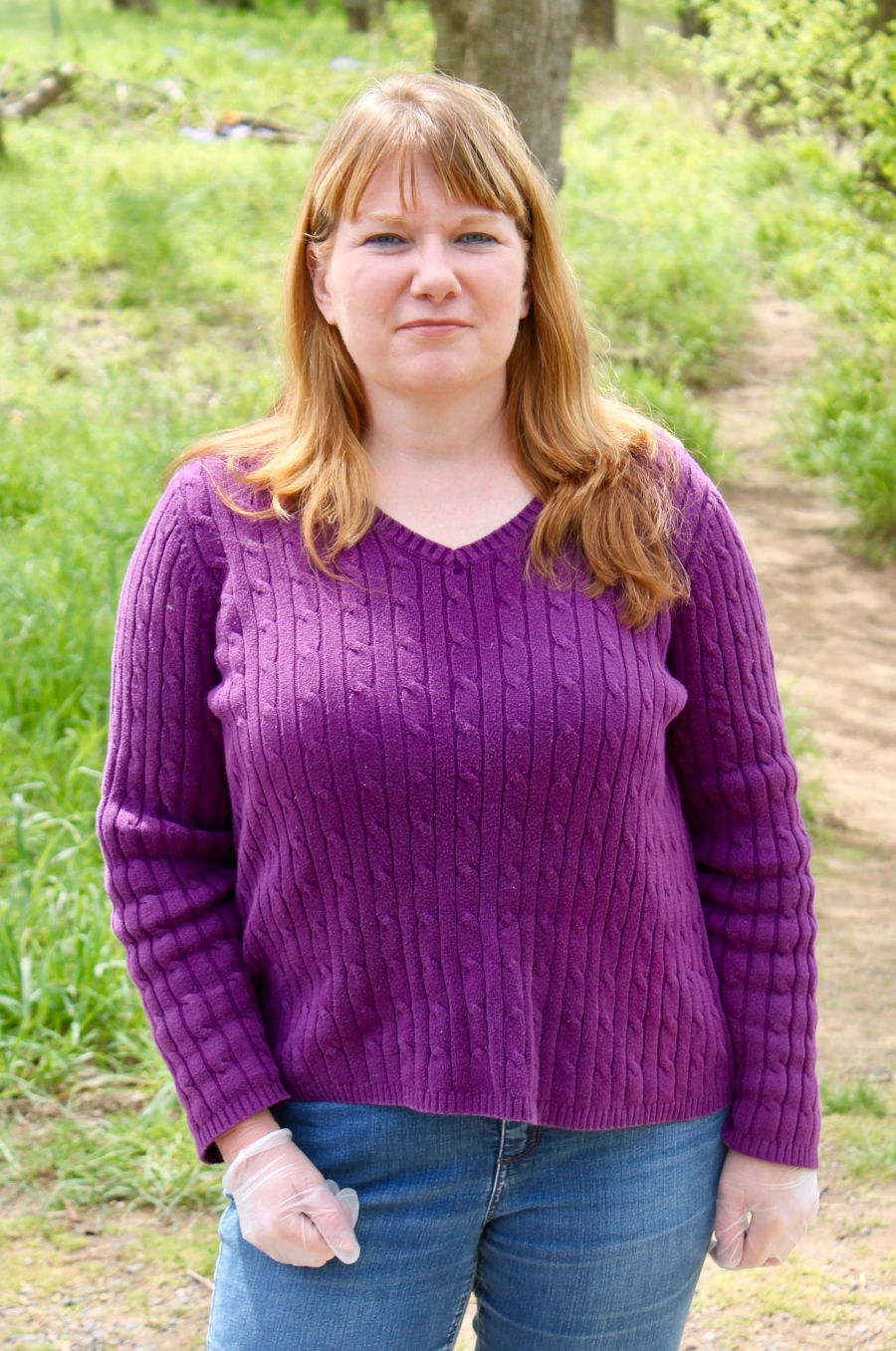
Elizabeth Peachy
Home health aide · Age 49
“It’s not really about the money, because it isn’t enough to live on, to be honest.”
“We do not get any benefits. We are not given any PPE. We’re not given any resources other than an online website. In one day, I was in West Virginia, trying to find PPE. I would be in Augusta, I would be in Wardensville, Baker, and in Moorefield. I would be in Winchester, Virginia, Front Royal, in Stephens City. We have people going in homes, and we get no PPE.
“Without home care workers to care for these high-risk patients, they will become sick even without the COVID-19. We bathe them, we feed them, we clean them. We take them to the doctor appointments, we take them to the hospital, we take them to get blood work. We buy their groceries.
“I can guarantee you, if these workers don’t come out to these homes and they do not provide care to these high-risk patients, they will get sick and thousands will be in the hospital. And they will be flooded with these patients.”
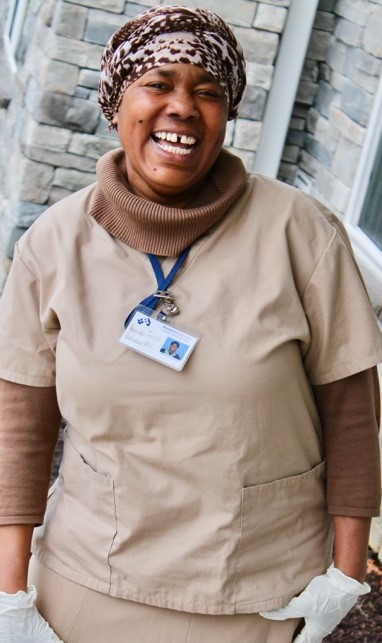
Pauline Moffitt
Home health aide · Age 50
“I pray always: Lord, please stretch my pay. Please. It is a struggle.”
“We do a lot. We do more than even nurses and doctors. We go beyond just cleaning, changing diapers. We are their family. We are their eyes and their ears. You keep them company, you make them laugh, you cheer them up. Sometimes mentally, it is a challenge for us, it breaks us down. At the end of the day, you are tired.
“The work is more than the pay. They cut back my pay to $9 an hour. I spend more than I make. It is a struggle. I live in a low-income home. My husband right now because of the virus is out of a job. I have to pay a lot of bills. What am I supposed to do? I just wish they would raise it and give us a little more. Not just for me, but all the other home health aides that are in the same situation.”
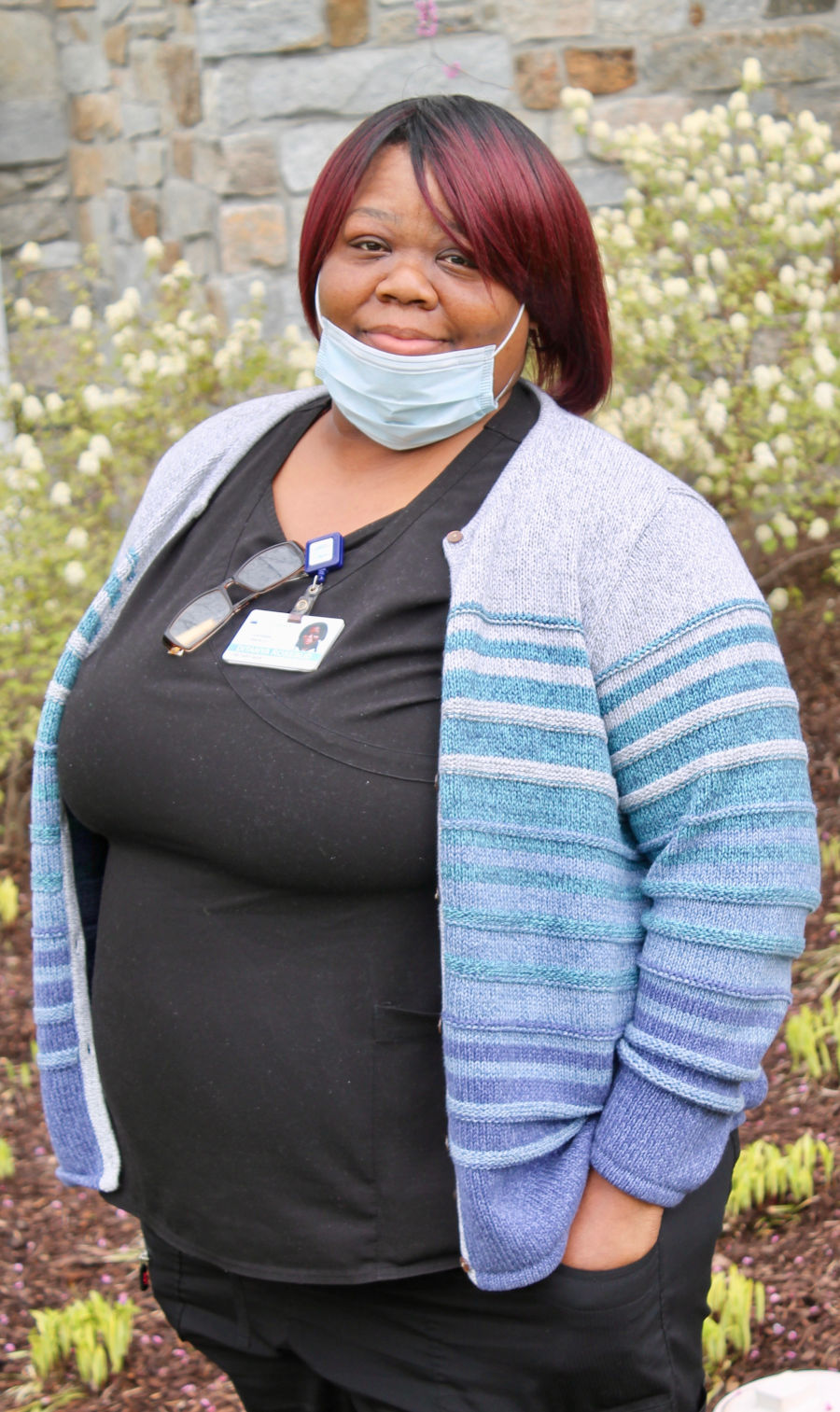
Ditanya Rosebud · Age 46
Nursing home cook and hostess
“I am diabetic, I am asthmatic. I don’t want to bring this home to my kids.”
“I understand we signed up to work in a nursing home. But we didn’t sign up for this pandemic. We wanted to make sure that our residents are well taken care of, well fed, the place is clean and sanitized. We didn’t come in to say: Well today might be your last day.
“We—the CNAs, the GNAs, housekeeping, dietary, laundry—we are right there. Still bringing supplies. Still cleaning. Still cooking. Still interacting with the residents. We come to work on days that we aren’t even scheduled for because we have so many other employees out. And all they can say to us is, ‘This is what you signed up for.’ It is frustrating. I am pissed off.
“Our situation will be better if we can get appreciation. That sounds crazy: appreciation. A thank you. ‘I am glad you are here, thank you for coming to work.’ Hazard pay. Anything. Somebody do something! The company shows no compassion. We are just another body. That’s it. No more, no less. But I continue to go because those residents also need somebody there for them. They can’t see their family members, they can’t go out of their rooms. So we try to find little things to do. I just love the work.”
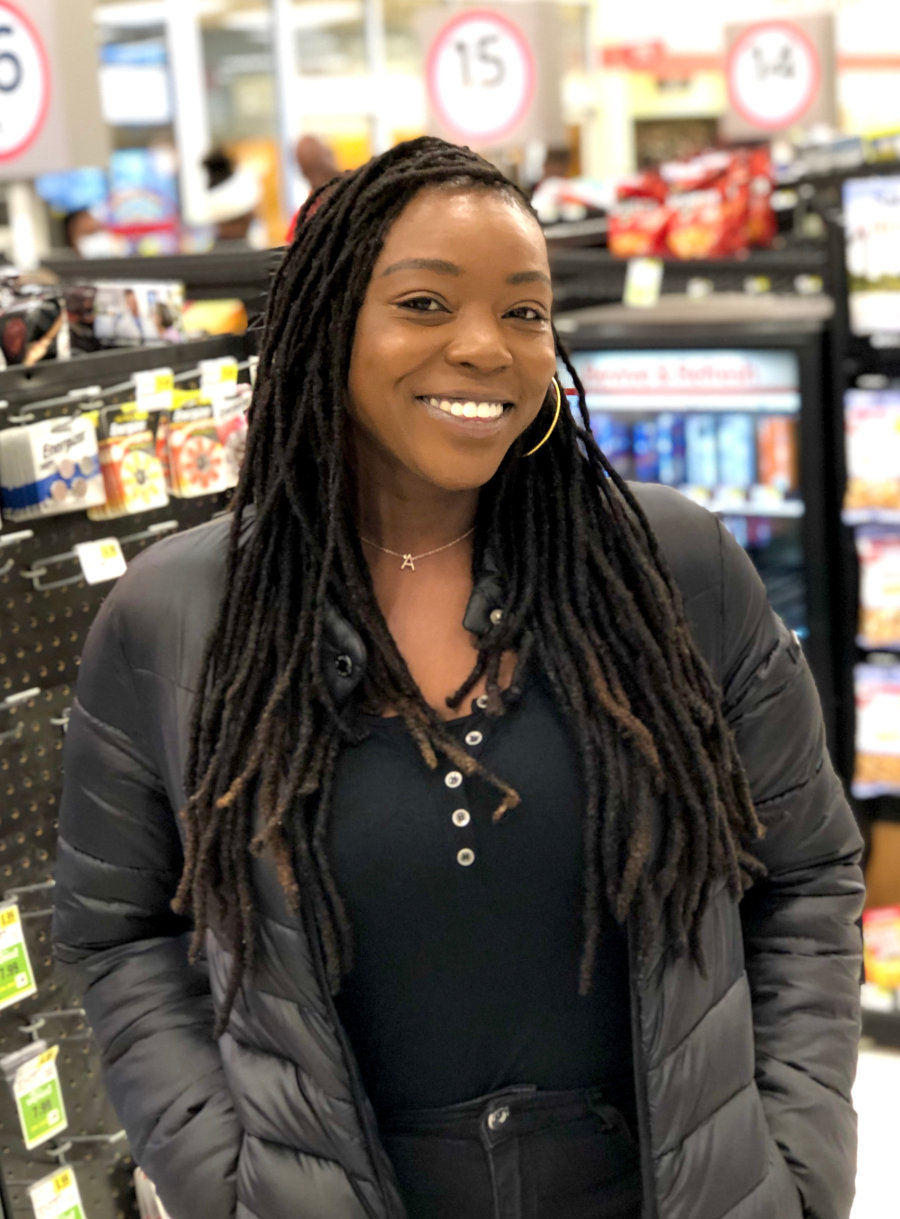
Amber Stevens
Cashier at Shoppers · Age 30
“It is very tiresome on the body, as well as scary on the mind.”
“We are tired. The past 3 to 4 weeks have been consistent, nonstop people. They haven’t really put a limit on how many people can come in at a time. We don’t have restricted hours. It is worrisome.”
“I come home to my little one. I want to go home and see my mom. You don’t want to pick up anything at work and bring it back to your family. It is very scary.”
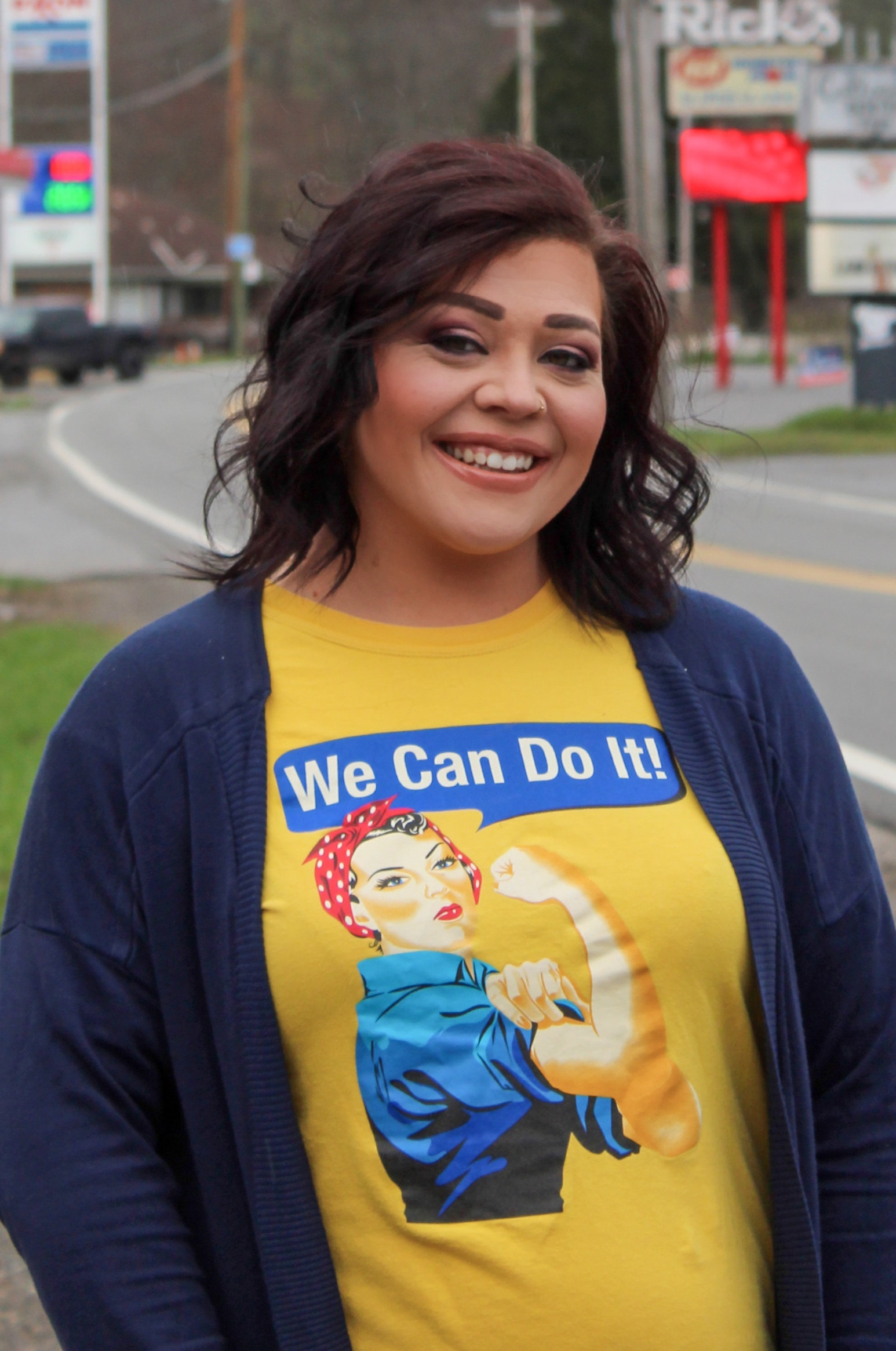
Courtney Meadows
Cashier at Kroger · Age 37
“We are no longer being seen as bottom feeders. It’s sad that it took this pandemic for people to see how really valuable we are.”
“I live in the coal fields of West Virginia. If you don’t have a medical degree, a law degree, or you’re a coal miner or something of that nature, then you have minimum wage jobs. People just look down on you, thinking, that that is all that you can get.”
“Now they are seeing, ‘these people are really putting their lives on the line. These people are worth more than what they make. These people are out here and they are serving us and being positive.’ The customers are grateful for it. It makes me proud.”
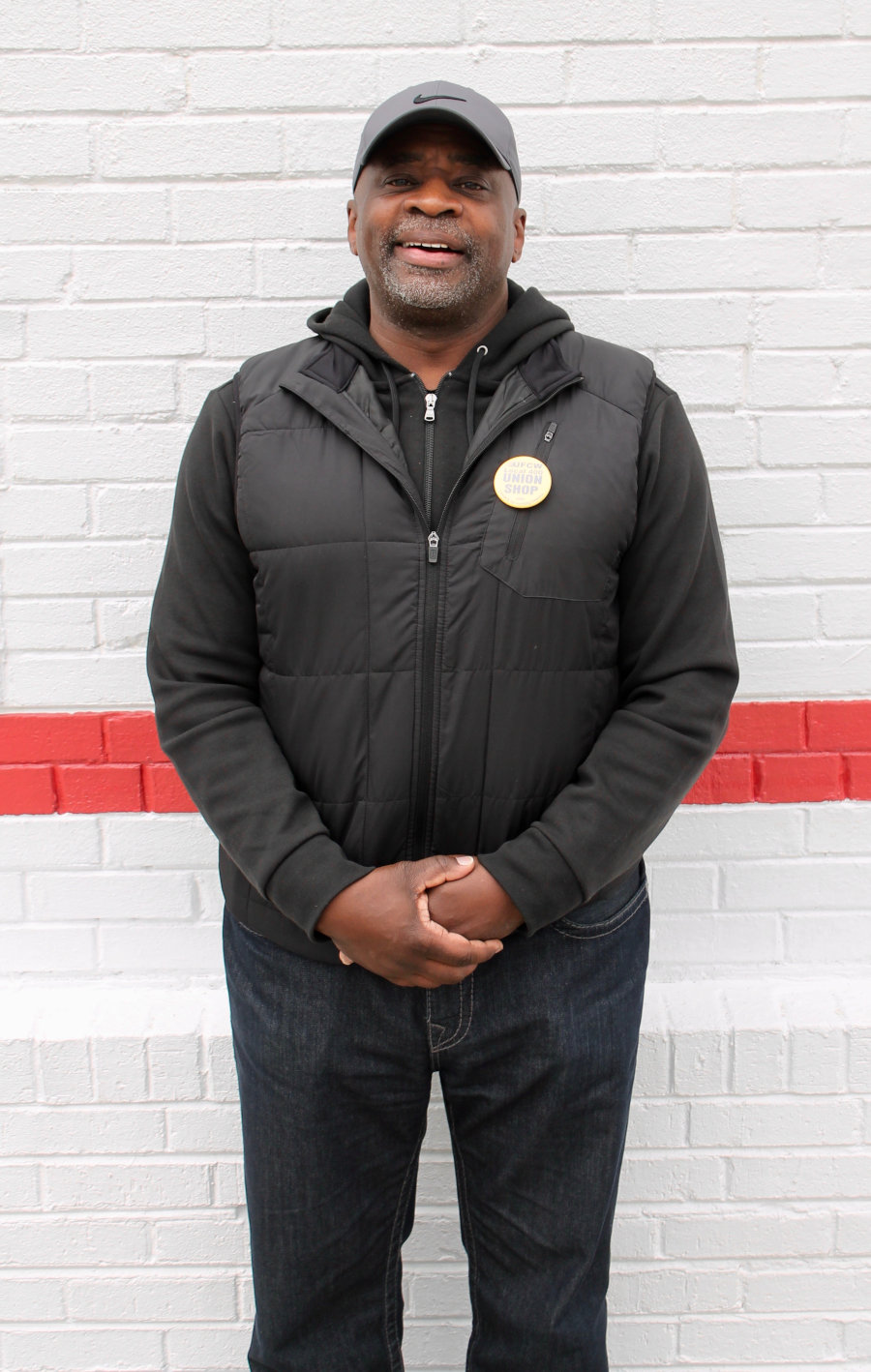
Jeffrey Reid
Meat clerk at Giant · Age 54
“It’s just the sheer enormity of this pandemic. You can see it in people. You can see fear. You can see pandemonium.”
“Someone will come around the aisle, they have the shopping cart, the gloves on, a mask on. You step back and think, ‘Wow, man, this is really happening.’”
“I am a hard worker. I get up every day, I do my 8 hours, it’s like a routine. Now overnight, I am thrust on the frontlines of this. The governors are saying you are essential personnel, the president is thanking grocery workers. I saw in line this little kid yesterday on National Superhero Day, dressed up as a clerk in one of his favorite grocery chains. I am fascinated and excited by it.”
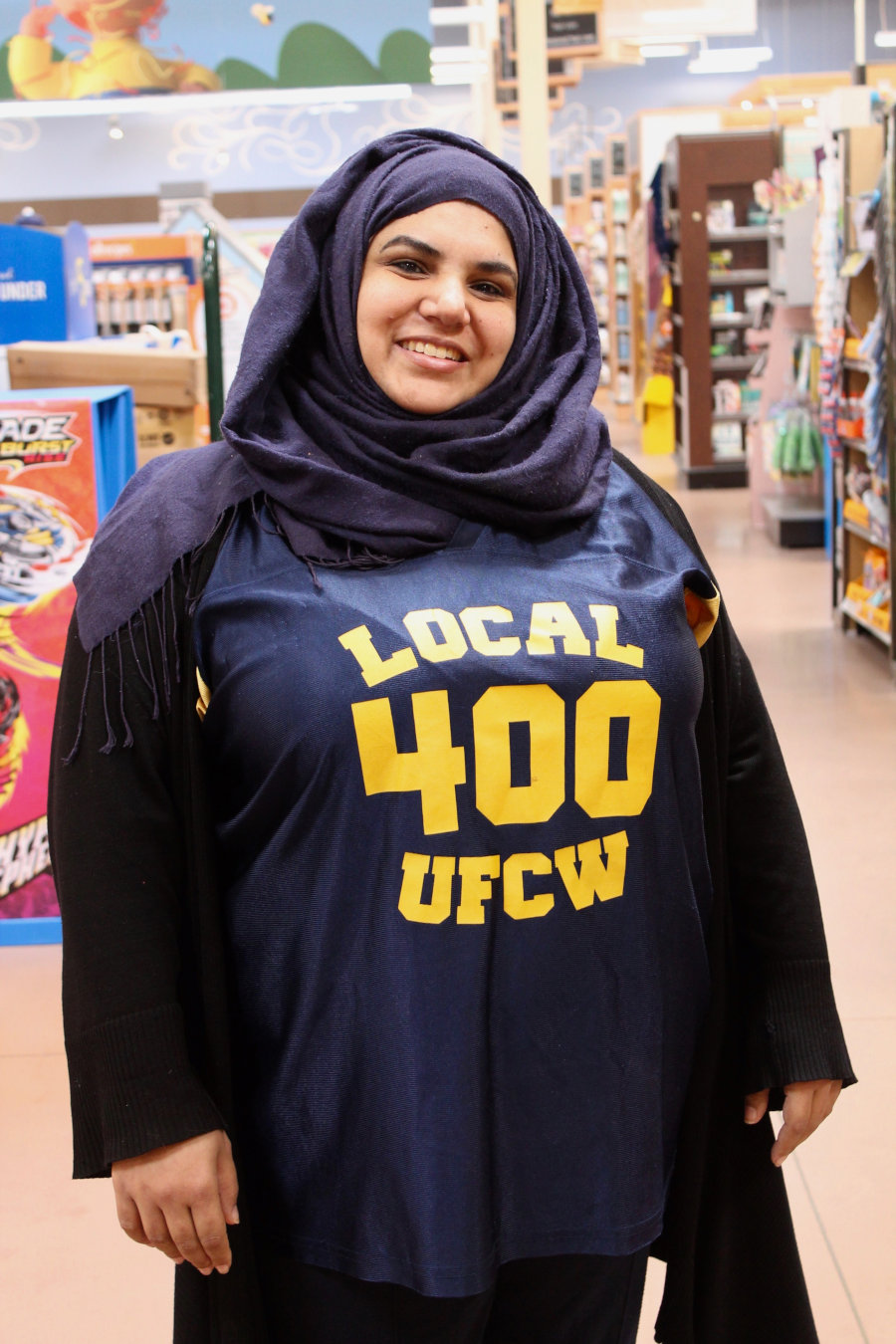
Lisa Harris
Cashier at Kroger · Age 32
“The pay isn't enough. I have coworkers that serve people every day, and then have to go pay for their own groceries with food stamps.”
“I understand that catching the coronavirus is a very good possibility given I see 300 customers a day. I am grateful for my health care that the union fought for. I pray a lot.”
“I am going to attempt to work through this at risk to myself. A lot of my coworkers are in the same boat because they can't afford to do otherwise. The atmosphere is anxiety ridden, hurried, and on edge. The customers are now saying thank you for your hard work. We would like to hear that from our company.”
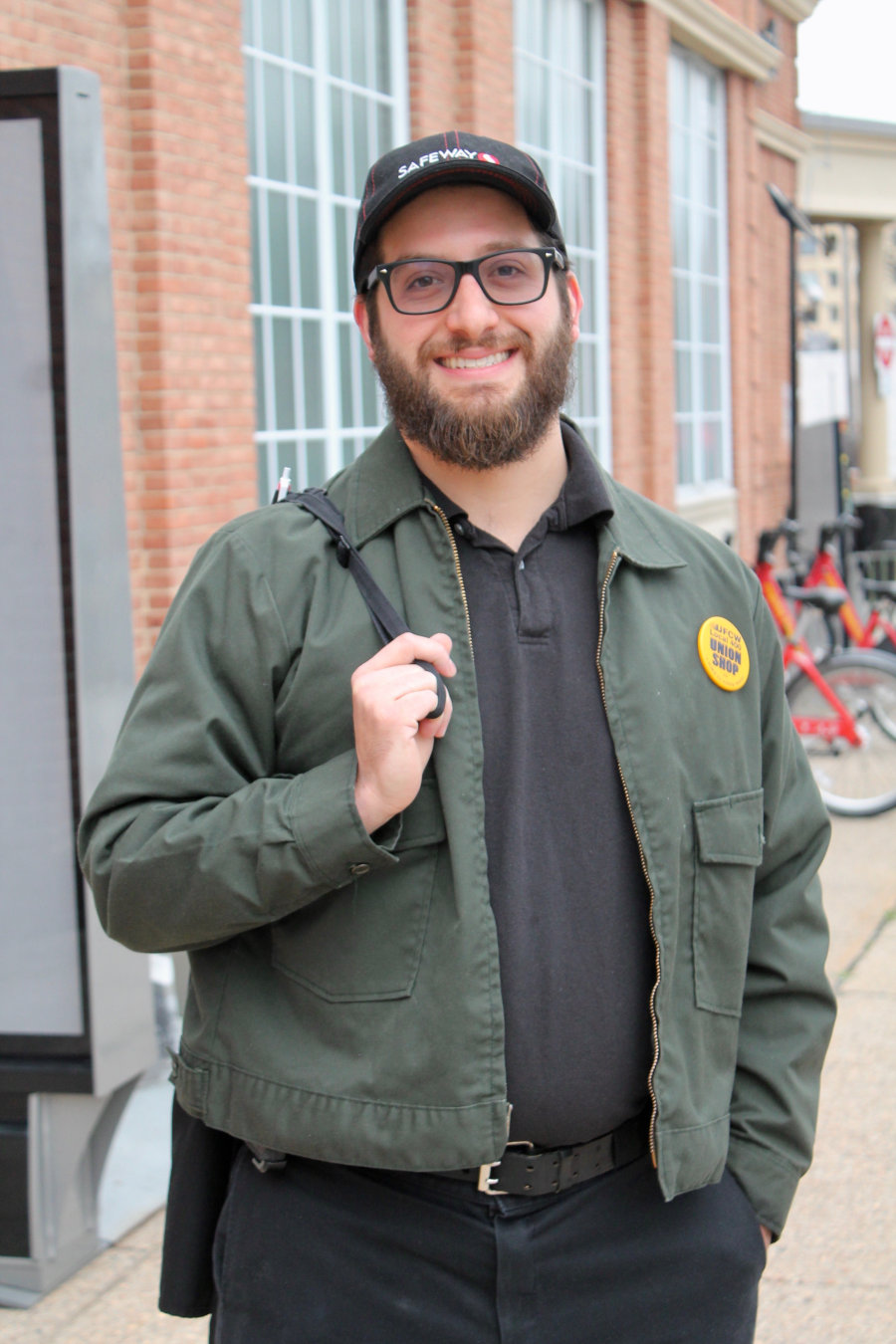
Matt Milzman
Cashier at Safeway · Age 29
“Realize that we are just as at risk as anyone who has been designated emergency personnel. I don’t have any special degrees to work grocery, but you have to eat.”
“To be honest with you, I am scared. I’m a religious man. Besides my normal prayers I do every day, I never did much special praying before I went to work. Before every shift, I am doing that now.”
“This is a virus, this isn’t just a slip and fall at work. It is going to hurt my kids, my community. I live in an apartment building. We live on top of each other. This thing spreads like crazy.”
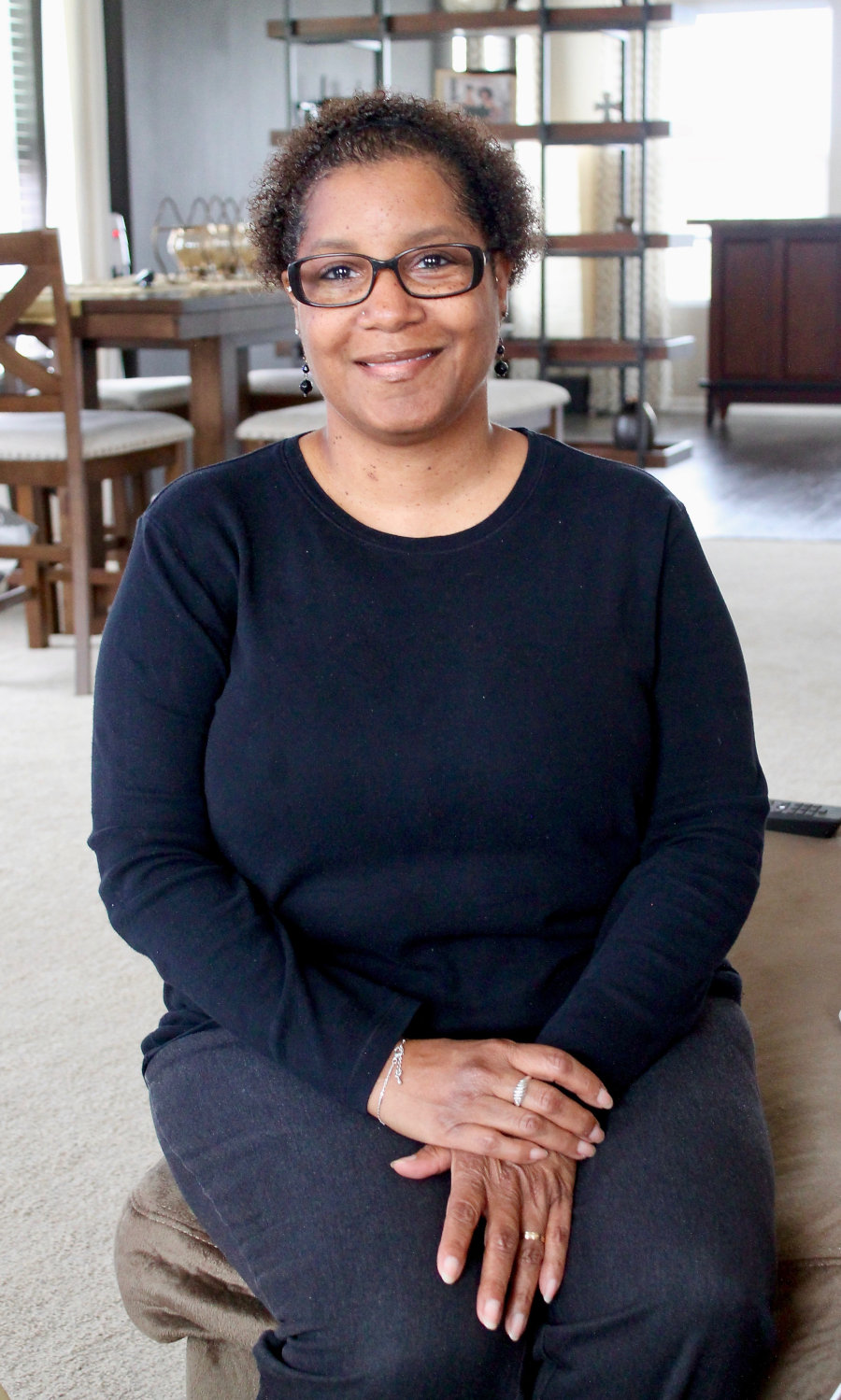
Michelle Lee
Cashier at Safeway · Age 51
“Today I rang up an $800 order. My back was hurting, my arm was hurting. My coworkers are saying their bodies are starting to wear down.”
“We aren’t staying six feet away from the customers. When we ring them up, they are like two feet away from us. We check out 200 customers a day. A doctor can wear a mask and protective gear. We don’t have all of that.”
“My concern is not just for me, but for all of my coworkers. I know a lot of my coworkers have little children. Some of my coworkers have some illnesses that they are fighting. A lot of my coworkers can't afford to be off work for a long period of time.”